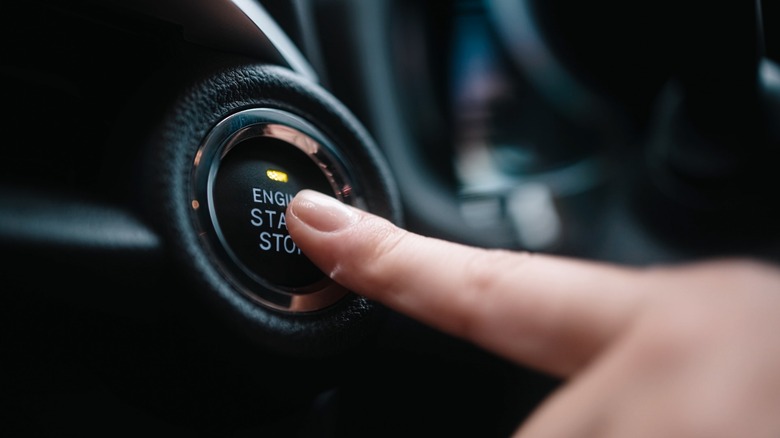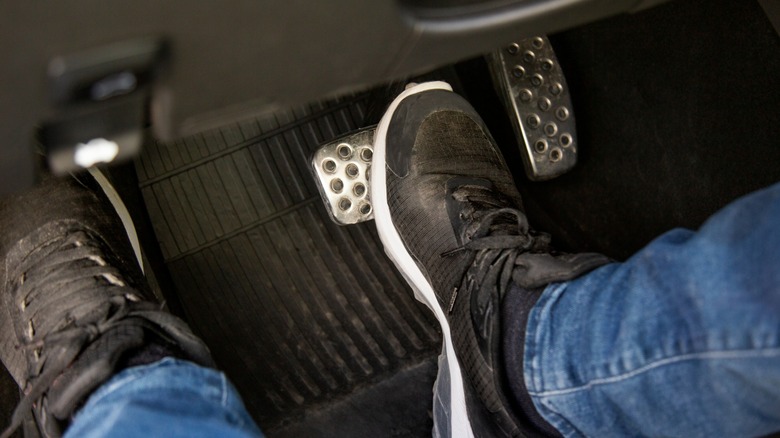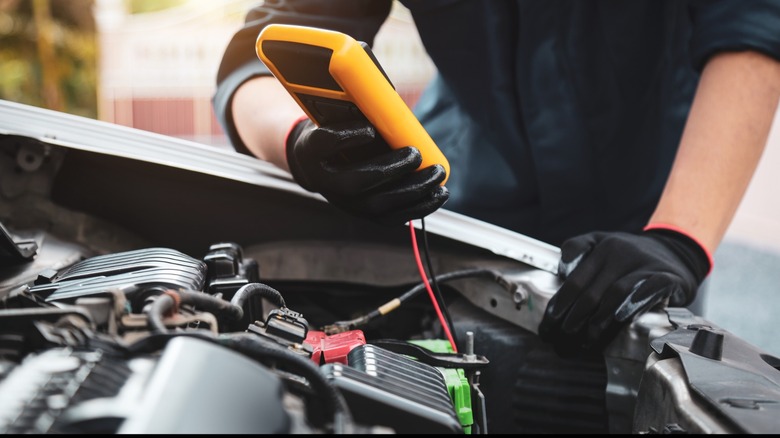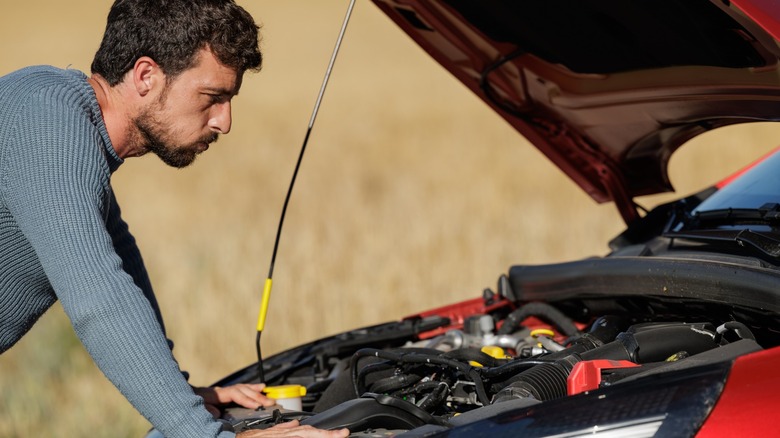What Could It Mean If Your Push-Start Vehicle Won't Crank?
We may receive a commission on purchases made from links.
We depend on our cars in our everyday lives to the point that when they fail to start under any conditions, it can immediately signal the transition to a really bad day. Seriously, when was the last time you got into your car that you didn't absolutely have to be somewhere with no time to spare for any type of car drama. Kudos to you if you have time for the occasional joyride sans destination or set schedule, most of us have places to be.
There are a few common reasons why your car won't start, but if your vehicle has the newer keyless-ignition style push-to-start system, there are some specific things that could prevent it from cranking or even trying to start. We'll run down a few tips and tricks to troubleshoot a car that won't start with a push-start ignition, and what to do once you've identified the reason for the no crank condition.
Press the brake pedal firmly with your foot
Push-to-start vehicles employ a few safety features to prevent starting the engine by an accidental press of the start button. One of those features is to lock out the ignition system unless the brake pedal is firmly pressed. While you shouldn't have to press the brake like you're trying to avoid a baby duck on the freeway, you do have to apply more than just casual pressure. Timing can also be an issue, if you've pushed the button even a millisecond before achieving adequate pressure on the brake pedal the engine won't crank and will cause a moment of panic.
The good news is that if inadequate brake pedal pressure is the cause for the vehicle failing to crank, it's an easy fix. Simply remove your finger from the start button, place both feet on the floor of your vehicle, take a deep breath, and try again. This time, firmly press the brake pedal before making contact with, and pushing, the start button.
You could have a bad battery (or two)
Your car's refusal to crank when the start button is pushed could be a sign that it's time to replace your car battery. However, if your key fob won't unlock the doors, but the locks work using the interior buttons, or if your car will crank when the smart key is held close to the button, the issue might be a weak smart key battery instead.
If you have access to a spare smart key for your car, or have a new battery for it (be sure to consult your owner's manual for the proper replacement procedure), you can probably eliminate the smart key as the source of the problem. If you're the DIY type, and have the proper tools, you could check the battery voltage with a multimeter like this auto-ranging digital unit from Klein Tools. While you're checking your car's battery, be sure to look for signs of corrosion around the battery terminals, any bulges on the case, and any liquid or smelly goo oozing from anywhere. These are sure signs that your battery is shot.
If you can tell your car battery is dead it's probably best to call in the pros unless you're an advanced DIY mechanic. Attempts to change a battery without the proper knowledge can short out your car's electrical components. Also, the lead-acid batteries commonly found in automobiles can emit a flammable combination of hydrogen and oxygen that is easily ignited by any spark or other ignition source.
Other causes of the dreaded no crank condition
Some cars are equipped with a smart key deactivation switch, typically located near the bottom of the instrument panel. If this switch is activated by another driver, or accidentally without knowing it, it could be the source of your frustration. The good news is that switching it back to active should allow the car to start as it normally would. Otherwise, it should start with the manual key that's often hidden in the smart key fob.
If you hear clicks or spinning noises, but your engine does not crank, it could be another sign the battery is dead. However, it could also be an indication of a faulty starter solenoid, starter Bendix, or the starter motor itself. It could also just be a loose wire, but again, we're into territory where we'll probably need to call a pro.
Another possible, but unlikely, cause for your car not cranking is a bad Engine Control Module (ECM). Most of the time a failed ECM presents other signs like a check engine light, poor engine performance, a drop in fuel economy, and failure to start even though the engine cranks. If you've noticed these other symptoms prior to experiencing the no crank issue, it could be related to the ECM. Again, sorry to say, you're likely going to need some professional help with this one too.



